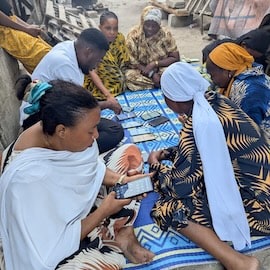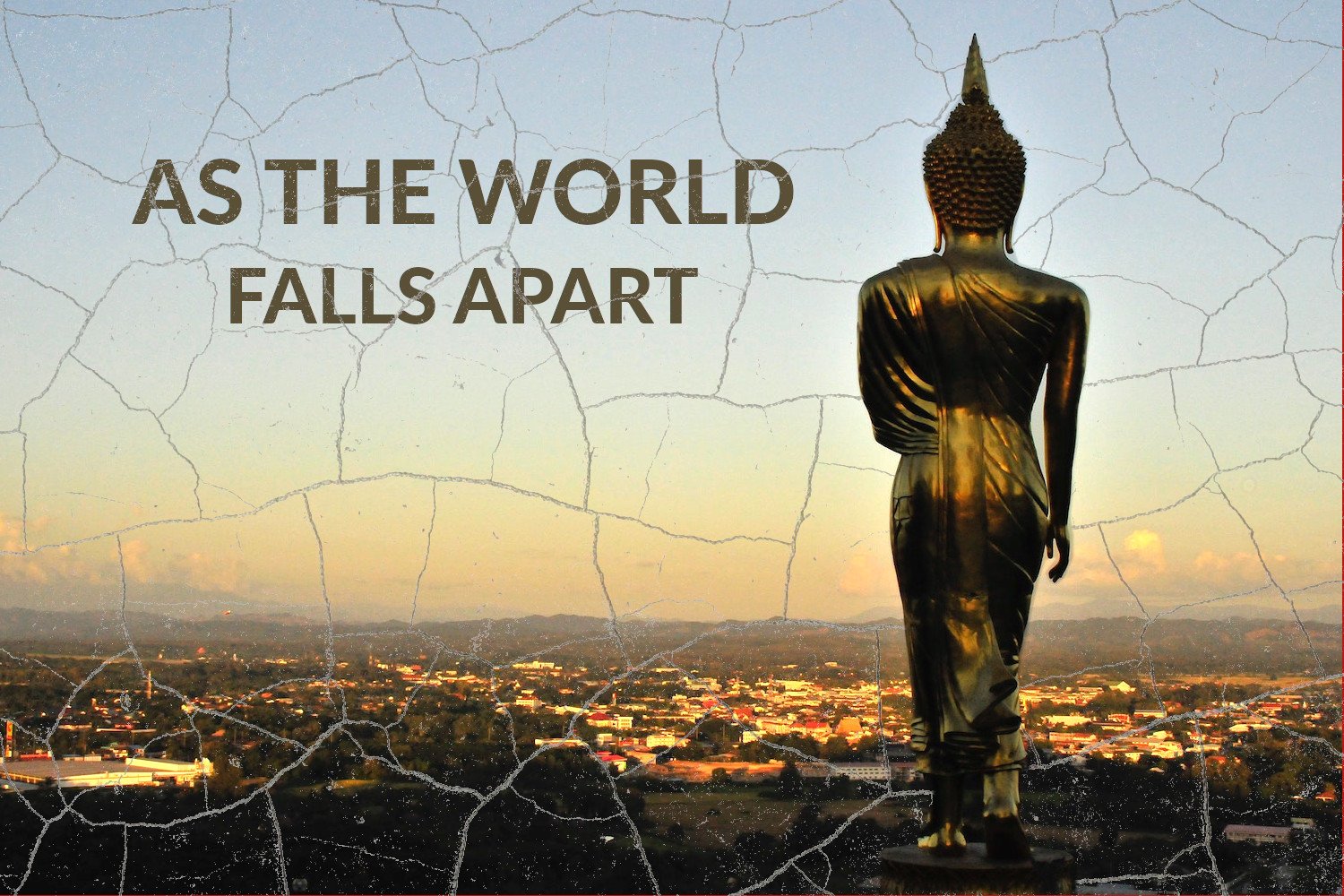African startups raised a record $5.2 billion in 2021, yet funding declined to $3.2 billion in 2023 amid global economic headwinds, and the market has yet to fully recover its previous momentum. And while the $15 billion+ in startup funding raised on the continent in the last five years may sound impressive, much of it has been concentrated on sectors like fintech and e-commerce, and it’s a tiny fraction of the $344 billion in global venture capital (VC) investments in 2023 alone.
These numbers highlight two challenges facing African startups: one that’s commonly known, another that’s often overlooked. First, the VC funding these enterprises are receiving is both unstable and insufficient to power their sustainable growth. And second, the pursuit of traditional VC funding often diverts founders from tackling Africa’s most pressing challenges. So instead of developing solutions to the continent’s biggest issues — e.g., healthcare, unemployment, insecurity and education — many African founders base their decision about the focus of their business on how likely it is to get VC funding.
As a result, many promising young businesses are working to build profitable apps instead of addressing Africa’s textbook “wicked problems” — complex, interconnected issues with no straightforward solutions. Consider healthcare: 50% of Africans lack access to essential medicines due to a perfect storm of underfunded public systems, inadequate infrastructure and poverty. Similar challenges impact education on the continent, resulting in 87% of children not meeting minimum proficiency in reading.
Yet instead of developing innovative African-made solutions to these problems, many of the continent’s most talented entrepreneurs are focused on launching VC-friendly businesses or preparing for their next funding round.
Supporting African Founders in Addressing Wicked Problems
Wicked problems demand systemic solutions, and the entrepreneurs who tackle them require the support of other stakeholders across the ecosystem, including mentors and coaches, government agencies, and policymakers — and of course, investors and other funders. But African founders striving to deliver those solutions often lack this support. And when it comes to funding in particular, they face a starkly different landscape than their peers in Silicon Valley and other tech and investment hubs in the Global North. While living at Stanford, I routinely witnessed how easy it was for aspiring founders to readily access a network of friends and family able to write $5,000 – 10,000 cheques to get an idea off the ground. In Nairobi or Lagos, that sum might well exceed the monthly discretionary income of an aspiring entrepreneur’s entire personal network.
This paucity of pre-seed capital leaves the continent’s founders heavily reliant on foreign VC funding to scale. But these investors’ aggressive growth expectations — and their commonly held belief that a small number of investments will generate the majority of returns, while the rest will likely break even or fail — can compel African startups to scale prematurely without validating product-market fit or unit economics. This can undermine these businesses’ growth prospects in the longer term, contributing to a failure rate for startups that averages 54% across the region, and can reach 75% in some countries.
The mismatch between venture capital’s traditional time horizons and African founders’ operating realities is particularly acute in sectors addressing wicked problems. A startup striving to deliver affordable healthcare to rural populations or upskill millions of unemployed youth simply cannot achieve Silicon Valley’s hallowed hockey stick growth within a five-to-seven year fund lifecycle.
The Need for Patient Capital for African Entrepreneurs
What these entrepreneurs need is patient capital — i.e., investment that prioritises sustainable growth and impact over rapid returns. As pioneering impact investors have shown, patient capital can be transformative in nurturing ecosystems of startups solving entrenched social challenges. For instance, Acumen’s long-term commitment to Kenyan startup Burn Manufacturing enabled it to become Africa’s leading clean cookstove producer, impacting over 15 million lives. Aavishkaar’s patient investments in 60+ early-stage Indian enterprises have unlocked access to essential services like financial inclusion and sustainable agriculture for tens of millions of underserved people. Root Capital’s long-term financing for Latin American agribusinesses has supported almost 250 agricultural businesses benefiting more than 500,000 smallholder farmers. And Insitor’s investments in Southeast Asian social enterprises have enabled these businesses to scale up to serve 55 million low-income customers.
While the typical venture capital investment horizon ranges from five to 10 years, depending on the investment stage, most successful impact funds invest over a period on the upper end of that spectrum. That longer runway empowers founders to validate their model, deeply understand complex ecosystems, and build trust with underserved communities to incrementally drive systems change. But most importantly, it allows them to grow sustainably.
Nevertheless, some sceptics might argue that this patient approach dampens returns. But on the contrary, a 2023 GIIN study found that, in a sample of over 300 impact funds, 74% targeted risk-adjusted market-rate returns, and 79% of these funds either met or outperformed their financial expectations, while 88% met or exceeded their impact expectations.
Based on these findings, aligning financial expectations with long-term impact goals doesn’t condemn investors to concessionary returns. But it does require a shift in time horizons and success metrics. For African markets, where the average seed round size is $1.2 million (less than half the average in the Americas), most startups will need multiple patient funding rounds and deep strategic support from investors if they hope to reach scale.
An Untapped Source of Patient Capital: The African Diaspora
So who will unlock this much-needed patient capital for African founders? Development finance institutions like the International Finance Corporation and African Development Bank have historically played an outsized role, though private funders are also an emerging force.
But there’s another potential source of this capital that’s largely untapped: the African diaspora. African expats living around the world are a particularly potent catalyst for business growth that’s waiting to be activated. With the $54 billion in annual remittance flows they send to sub-Saharan Africa, imagine if just 1% was redirected into patient startup investing. That would amount to $540 million in additional catalytic funding for African entrepreneurs, along with invaluable expertise and networks.
At Innovate Africa Fund, mobilising diaspora capital is core to our strategy. We’re enabling Africans at home and abroad to invest in startups that are solving critical challenges in their communities of origin. By pooling the capital contributed by African expats (alongside investments of our own), and equipping innovative entrepreneurs with long-term financing and strategic support, we aim to ignite an ecosystem of 1,000 startups, transforming 100 million lives by 2030.
The expats who participate will receive a return on their successful investments, which will vary based on several factors, such as the size of the exit. They can decide which entrepreneurs or development objectives they wish to support, from among the growing pool of founders in our network. Those who want to provide coaching, mentorship or other entrepreneur support activities are encouraged to do so.
But realising this audacious vision requires all stakeholders to act with bold intentionality: That’s why we’re seeking not only African expats who want to support African enterprises, but also founders who are laser-focused on creating customer value and building viable businesses that solve development problems in their communities. Along with other shrewd investors who acknowledge the distinct complexities of operating in African markets, we are embracing a patient mindset in supporting these entrepreneurs. This means we prioritise startups’ sustainable growth and impact over quick returns in the short term. Our goal is to be the first of many patient partners who intimately understand local nuances, and who back African entrepreneurs for the long haul.
Our fund will start deploying capital in 2025. Right now, we’re building our pipeline. We invite investors, entrepreneurs, technology experts experienced in driving startup growth, and other allies in the African diaspora to join us: You have the means and contextual insight to be uniquely catalytic to promising businesses across the continent. The time is now to step up as providers of patient capital. Consider deploying $5,000 – $50,000 into high-potential startups tackling the most pressing issues in your home communities. Your blend of local knowledge and global exposure makes you potentially indispensable partners to these enterprises.
By equipping founders with patient capital to responsibly grow and generate impact, we can cultivate a startup ecosystem that transforms lives at scale. This is the promise of the patient approach — but it can only be unlocked through our collective action.
Kristin H. Wilson is Managing Partner at Innovate Africa Fund and Bold Angel Network.
Photo courtesy of Pexels.
Publisher: Source link






